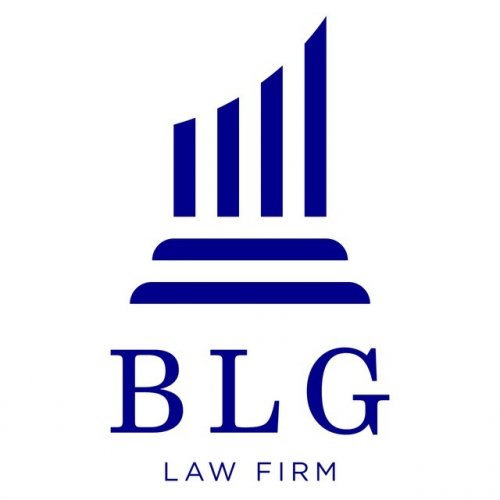Best Transportation Lawyers in Uzbekistan
Share your needs with us, get contacted by law firms.
Free. Takes 2 min.
Or refine your search by selecting a city:
List of the best lawyers in Uzbekistan
About Transportation Law in Uzbekistan
Transportation law in Uzbekistan covers a wide range of regulations and standards that govern the movement of people and goods within the country and across its borders. The transportation sector includes road, rail, air, and maritime transport, each with specific legal frameworks and regulatory bodies. The primary focus is to ensure safety, efficiency, and compliance with international standards, facilitating both domestic and international trade and mobility.
Why You May Need a Lawyer
There are several situations where individuals or businesses may require legal assistance in the field of transportation. These include:
- Disputes over transportation contracts, such as freight agreements or carrier liabilities.
- Navigating compliance with regulatory requirements and standards set by transportation authorities.
- Accidents or incidents involving transportation vehicles, leading to personal injury claims or property damage disputes.
- Licensing issues for carriers or operators, including obtaining necessary permits or dealing with violations.
- Environmental regulations affecting transportation operations, especially for freight and logistics companies.
Local Laws Overview
Uzbekistan's transportation laws are influenced by both national policies and international conventions. Key aspects include:
- Road Transport: Governed by the Road Traffic Safety Law, this includes regulations on vehicle standards, driver qualifications, traffic rules, and safety measures.
- Rail Transport: The rail segment is regulated under statutes that cover railway infrastructure, passenger rights, and safety standards.
- Air Transport: Overseen by the State Committee for Development of Tourism and regional airports, air transport laws include compliance with international civil aviation standards.
- Maritime Transport: Although Uzbekistan is landlocked, river transport laws manage freight and vessel operations on inland waterways.
Frequently Asked Questions
What is the legal age for obtaining a driver's license in Uzbekistan?
The legal age to obtain a driver's license for most motor vehicles in Uzbekistan is 18 years.
Are international driving permits recognized in Uzbekistan?
Yes, international driving permits are recognized in Uzbekistan, but it is advisable to carry them alongside your national license.
What should I do in case of a road traffic accident?
In case of a road accident, you must stop immediately, provide assistance if needed, and notify the local police. It's also important to exchange contact and insurance information with other parties involved.
What are the restrictions on foreign vehicles entering Uzbekistan?
Foreign vehicles must comply with Uzbekistan’s road safety standards and are subject to customs regulations upon entry. Temporary import permits are typically required.
How can I register a new vehicle in Uzbekistan?
To register a new vehicle, owners must submit a registration application, provide proof of purchase, insurance, and pay applicable fees through the local traffic police department.
What are the penalties for driving under the influence?
Driving under the influence of alcohol or drugs is illegal and can result in fines, license suspension, or even imprisonment, depending on the severity of the offense.
Is there a seatbelt law in Uzbekistan?
Yes, seatbelt use is mandatory for all passengers in a moving vehicle. Failure to comply can result in a fine.
Are there specific laws for carrying passengers for hire?
Yes, vehicles used for carrying passengers for hire must be registered, inspected regularly, and meet safety standards. Drivers must hold a special license for commercial transport.
What should logistics companies know about customs laws?
Logistics companies must comply with customs regulations for importing and exporting goods, which include tariff classifications, duties, and required documentation.
Can I appeal a traffic ticket in Uzbekistan?
Yes, traffic tickets can be contested in administrative courts if you believe they were issued unfairly or in error.
Additional Resources
The following resources can provide additional insight and assistance:
- The Ministry of Transport of the Republic of Uzbekistan: Governs transport policies and regulations.
- Uzbekistan State Customs Committee: Handles issues related to the import and export of goods.
- National Road Safety Committee: Provides guidelines and information on road safety standards.
Next Steps
If you find yourself in need of legal assistance in the field of transportation in Uzbekistan, consider the following steps:
- Identify the specific area of transportation law you need help with (e.g., contract disputes, regulatory compliance).
- Gather all relevant documents and information related to your case.
- Consult with a local attorney specializing in transportation law to discuss your situation and explore your options.
- Determine a course of action in consultation with your lawyer, which may include mediation, negotiation, or formal legal proceedings.
Lawzana helps you find the best lawyers and law firms in Uzbekistan through a curated and pre-screened list of qualified legal professionals. Our platform offers rankings and detailed profiles of attorneys and law firms, allowing you to compare based on practice areas, including Transportation, experience, and client feedback.
Each profile includes a description of the firm's areas of practice, client reviews, team members and partners, year of establishment, spoken languages, office locations, contact information, social media presence, and any published articles or resources. Most firms on our platform speak English and are experienced in both local and international legal matters.
Get a quote from top-rated law firms in Uzbekistan — quickly, securely, and without unnecessary hassle.
Disclaimer:
The information provided on this page is for general informational purposes only and does not constitute legal advice. While we strive to ensure the accuracy and relevance of the content, legal information may change over time, and interpretations of the law can vary. You should always consult with a qualified legal professional for advice specific to your situation.
We disclaim all liability for actions taken or not taken based on the content of this page. If you believe any information is incorrect or outdated, please contact us, and we will review and update it where appropriate.
Browse transportation law firms by city in Uzbekistan
Refine your search by selecting a city.









